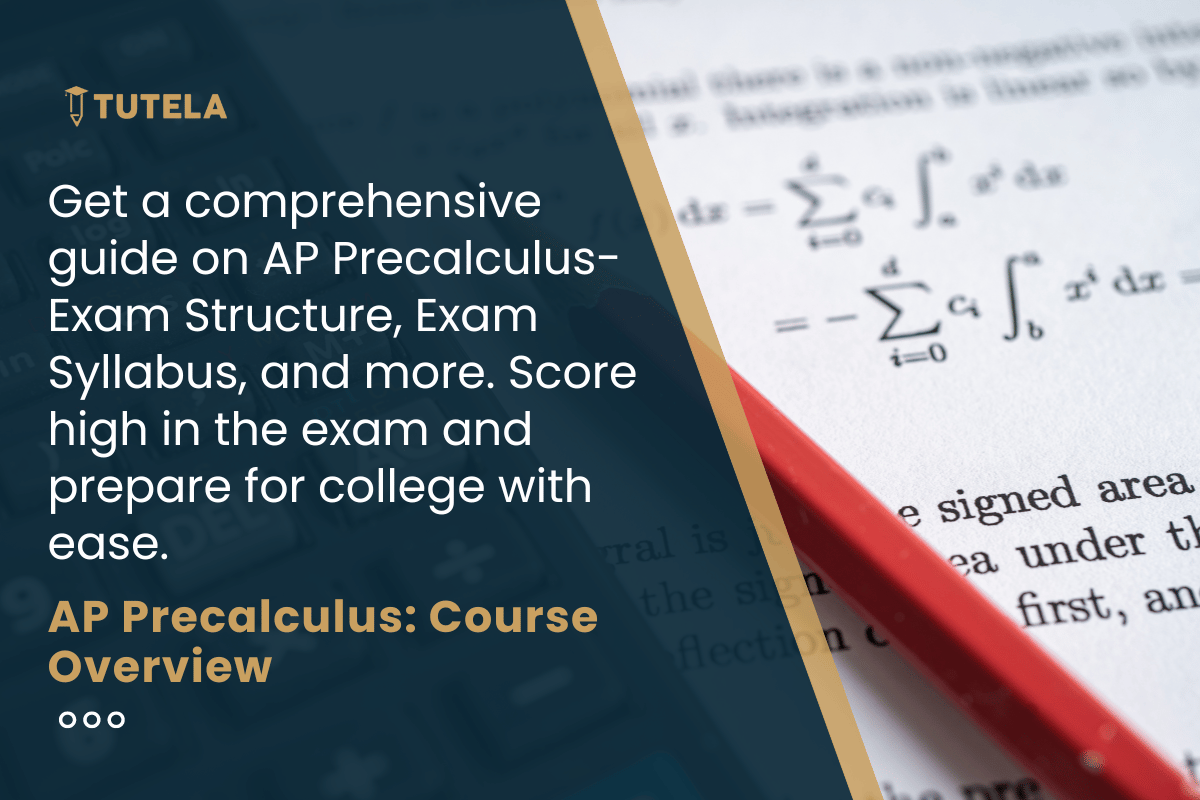
Are you a high school student who is eager to excel in mathematics and set a strong foundation for future academic pursuits? Look no further than AP Precalculus, the latest addition to the Advanced Placement (AP) program. This groundbreaking subject not only enhances your mathematical prowess but also opens doors to a multitude of benefits, from earning college credit to boosting your GPA. In this blog, we delve into the advantages of AP Precalculus and how it equips you with essential skills for success in higher education and beyond.
AP Precalculus is an advanced high school course that serves as a foundation for college-level calculus. It covers topics like functions, trigonometry, exponential and logarithmic functions, and sequences. The course emphasizes deepening students' understanding of mathematical concepts and honing their problem-solving skills. Special attention is given to graphing functions, analyzing their behavior, and solving equations. Trigonometry is a key component in exploring functions and their applications. AP Precalculus encourages critical thinking, mathematical reasoning, and connections between different mathematical ideas. The course often incorporates practical applications and technology to enhance learning. Successfully completing AP Precalculus prepares students for more advanced courses, particularly in STEM fields. The AP Precalculus 2024 Exam is on 13th May 2024.
| Unit Name | Description | Weightage in the Exam |
| Unit 1: Polynomial and Rational Functions | In this foundational unit, students engage with polynomial equations, master factoring techniques, and explore the intricacies of rational functions. Graphing methods are emphasized, fostering a deep understanding of the graphical representation of these functions. | 30-40% |
| Unit 2: Exponential and Logarithmic Functions | Unit 2 delves into the dynamic world of exponential and logarithmic functions. Students not only grasp the principles of growth and decay but also apply these concepts to real-world scenarios like compound interest, population trends, and radioactive decay. This unit forms a bridge between algebraic concepts and their practical applications. | 27-40% |
| Unit 3: Trigonometric and Polar Functions | This unit is a journey into the world of trigonometry. From mastering sine, cosine, and tangent functions to exploring the unit circle, students gain insights into the fundamental aspects of trigonometry. Additionally, the introduction of polar coordinates opens doors to a new way of representing points in the plane. | 30-35% |
| Unit 4: Functions Involving Parameters, Vectors, and Matrices | Unit 4 introduces the versatility of functions with parameters, allowing students to manipulate functions in response to changing parameters. The exploration of vectors and matrices adds a layer of complexity, with applications ranging from physics to computer science. This unit sets the stage for a more abstract understanding of mathematical structures. | Not Assessed in the AP Exam |
The AP Exam Structure is described below:
Section-1- Multiple Choice
No. of Questions: 40
Duration: 2 Hours
Score Weightage: 63%, approximately
Section-2- Free Response
No. of Questions: 4
Duration: 1 Hour
Score Weightage: 37%, approximately
1. Engineering: AP Precalculus is crucial for engineering majors, providing the necessary mathematical foundation for advanced calculus, physics, and other engineering courses. Engineers apply mathematical principles to design and analyze systems, structures, and technologies.
2. Computer Science: AP Precalculus is valuable for computer science majors as it lays the groundwork for algorithms, data structures, and discrete mathematics. Computer scientists develop software, design algorithms, and work on innovative technologies.
3. Physics: Physics majors benefit from AP Precalculus as it introduces the mathematical concepts essential for understanding and solving physics problems. Physics explores the fundamental principles governing the behavior of matter and energy.
4. Mathematics: AP Precalculus is a natural precursor for a major in mathematics. This major delves into advanced mathematical theories, proofs, and applications, preparing students for careers in academia, research, or industries requiring strong mathematical skills.
5. Economics: Economics majors use mathematical models to analyze economic trends, make predictions, and understand the impact of various factors on financial systems. AP Precalculus provides the mathematical background needed for economic analysis.
6. Statistics: For majors in statistics, AP Precalculus serves as a foundation for understanding probability, data analysis, and statistical inference. Statisticians work with data to draw meaningful conclusions and make informed decisions.
7. Architecture: AP Precalculus is essential for architecture majors, as it provides the mathematical skills needed for structural analysis, geometry, and spatial design. Architects design buildings and structures while considering both aesthetic and functional aspects.
8. Actuarial Science: Actuarial science majors assess and manage financial risks using mathematical and statistical models. AP Precalculus is a crucial step toward mastering the advanced mathematical concepts required in this field.
9. Chemistry: Chemistry majors use mathematical principles to analyze and predict chemical reactions, study molecular structures, and conduct experiments. AP Precalculus lays the groundwork for understanding the quantitative aspects of chemistry.
10. Biology: AP Precalculus is beneficial for biology majors, particularly in fields like bioinformatics and biostatistics. These areas require mathematical tools for analyzing biological data, modeling biological processes, and conducting research in the life sciences.
TutelaPrep’s College Navigator allows students to search for colleges based on their preferred country and course. Not only that, it also provides valuable insights into each college’s specific admission requirements for those exams. Through College Navigator, you can even connect with alumni at your chosen colleges to get a firsthand feel for campus life and academics.
In conclusion, AP Precalculus is a transformative opportunity for high school students seeking to enhance their mathematical abilities and prepare for a successful academic journey. By taking this rigorous course, you'll not only distinguish yourself from colleges but also acquire indispensable skills for college-level coursework and future careers. Embrace the challenge, unlock your mathematical potential, and embark on a path to success with AP Precalculus.
Also Read: Understanding AP Exam Scores and How They Impact College Admissions